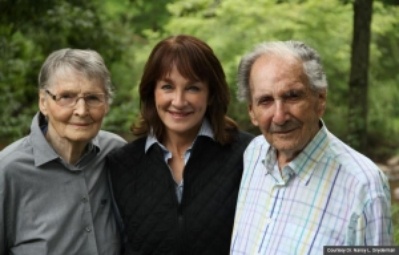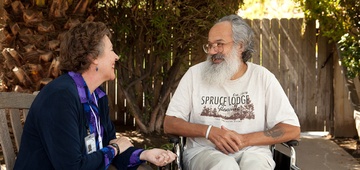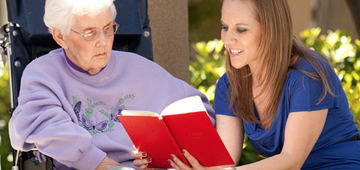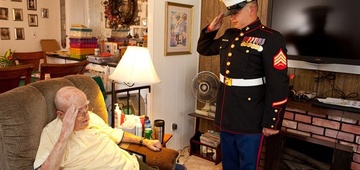
Six years ago my siblings and I decided it was time for our parents to live closer to family. So at the ages of 80 and 84, my parents moved from Fort Wayne, Indiana, where I grew up, to Princeton, New Jersey, where I live now. I was relieved to know Mom and Dad were getting out of the house, eating good food and taking the right medications. They adopted a rescue dog, made friends, and I swear they got younger in front of my very eyes.
 Sign Up for Our Newsletter >
Sign Up for Our Newsletter >
But the fairy tale that I had written for my parents could not last forever. A year after moving, my father was struck with a life-threatening case of shingles, and the new life they had invented came to a screeching halt.
In my family we have always had frank discussions about the quality and end of life and the right to own those decisions. So when I realized that my father was gravely ill, I sat at his bedside and told him I didn’t think he would live through the night without emergency care, but that the decision was his to make. He said with clarity, “I’m not ready to die.” In that moment, I went from daughter to caregiver — one of almost 44 million U.S. adults caring for an older friend or family member.
In the weeks that followed, I had a front-row seat to the chaos many families experience as they seek to coordinate care for a loved one. It would be easy to assume that, as a doctor, I could navigate the health care system with ease. But I was as overwhelmed as the next person. My medical expertise just fueled my exasperation.
To read the full article, visit AARP. Dr. Snyderman also founded a company called CarePlannersthat offers caregivers Web tools and one-on-one consultations across the country.
Nancy L. Snyderman, M.D., is a head and neck surgeon and a medical expert for AARP and NBC News.



